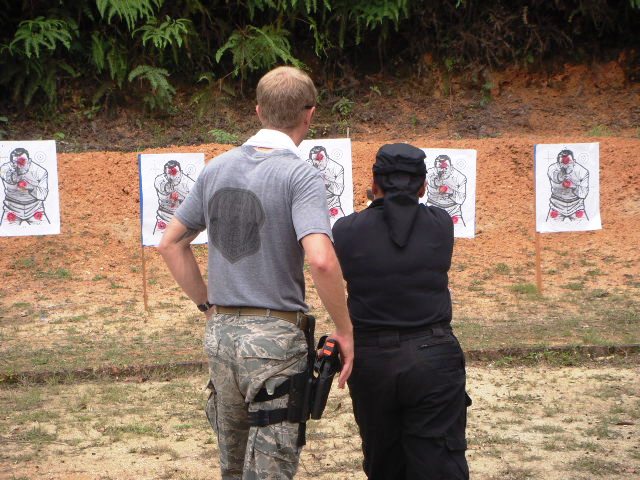
Police officers and deputies play an essential role in ensuring the utmost safety and security win the communities they serve. It is an understatement that they face a range of scenarios while they patrol the streets, drive rural roads or respond to emergency situations.
To prepare future law enforcement officers for such a challenging, yet fulfilling career, there is the police academy. Usually after you are hired by a police or sheriff’s department, you will then be sent to their affiliated training academy. Depending on the agency and jurisdiction, police academy may take between 12 and 20 or more weeks to complete.
“Whether you’ve spent the last 4 years in college earning your degree in criminal justice or the last 20 years in a military career, the chances are you’ll never be fully ready for what the first day at the academy will bring,” wrote Lieutenant Timothy Roufa, Police Academy Instructor at the Florida Department of Highway Safety and Motor Vehicles (in his About.com article “The First Day at the Police Academy).
It is only until you actually attend the police academy will you get an accurate insight into what it entails, but here is a preview of some of the training exercises you can probably expect.
Physical Training: As part of the police academy you will engage in an intense aerobic and strength exercise regimen. The Southern Arizona Law Enforcement Training Center recommends you begin getting in shape before attending police academy. You can probably expect various exercises including push-ups, sit-ups, pull-ups, climbs, obstacle courses, weight training and runs. At the end of the training, cadets must pass a physical aptitude test which may include a timed 500-yard run, a six-foot wall climb, dragging a 165-pound dummy and more.
Simulations: At the police academy you will complete a number of exercises that will prepare you for on-the-job scenarios. These include pursuing a suspect on foot or in a vehicle, defensive tactics, firearms training and teambuilding. In many cases you will also undergo the infamous OC or pepper spray training, including when you should employ it, how to employ it in the safest means possible and being sprayed yourself while performing a simulated arrest or another law enforcement scenario.
Paperwork and Reports: Although it may not seem important, the written word is a vital facet of law enforcement duties. Just think: if you are the first responding officer to a scene, what you write down during and afterwards could be crucial to closing the case. In the classroom, you will learn how to write reports, fill out all essential paperwork and complete written tests.
Lieutenant Roufa explains that the instructors may seem intimidating at first. They may yell, a lot, and point out any slight mistake you make. They are not doing this to lower your confidence but to prepare you to be the best law enforcement officer you can be. The sooner you develop a polite, positive attitude coupled with a hard work ethic and the goal of surpassing your potential, the sooner you will be a success. “Remember, the instructors aren’t there to scare you away or to hurt you,” wrote Lieutenant Roufa. “Their goal is to get you ready for the tough career ahead. A day in the life of a police officer takes endurance, discipline and a tough skin”.



